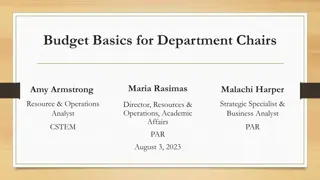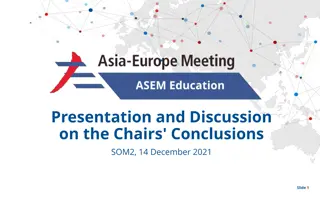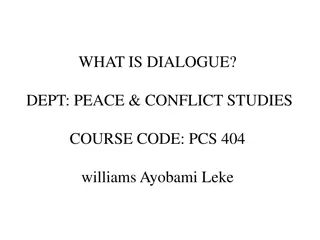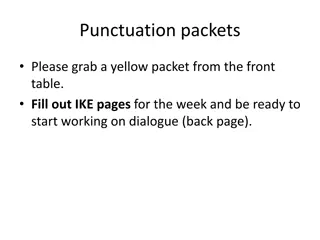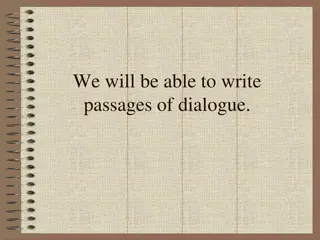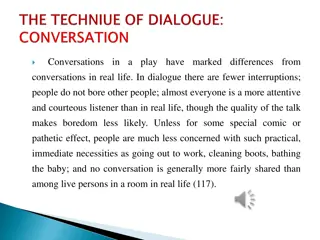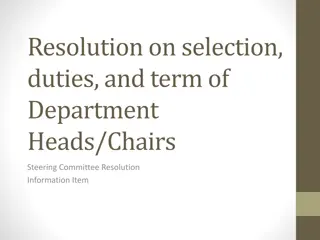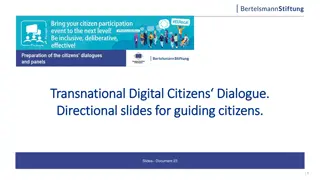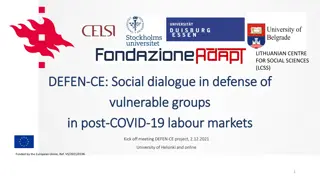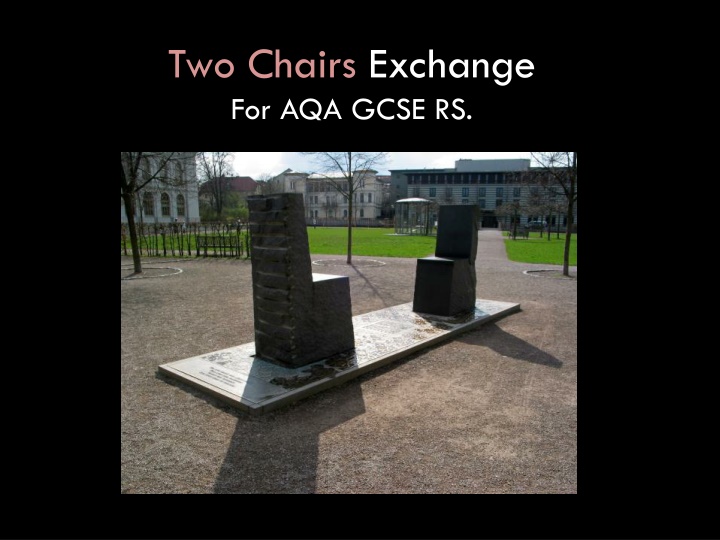
Interfaith Dialogue in AQA GCSE RS Curriculum
Explore the concept of interfaith dialogue through role-playing activities and class discussions in the context of AQA GCSE RS. Delve into the expectations, fears, and hopes of individuals engaging in interfaith events. Reflect on the ideas of Goethe and investigate Christian and Muslim perspectives on interfaith dialogue. Access useful weblinks to further understand interfaith interactions.
Download Presentation

Please find below an Image/Link to download the presentation.
The content on the website is provided AS IS for your information and personal use only. It may not be sold, licensed, or shared on other websites without obtaining consent from the author. If you encounter any issues during the download, it is possible that the publisher has removed the file from their server.
You are allowed to download the files provided on this website for personal or commercial use, subject to the condition that they are used lawfully. All files are the property of their respective owners.
The content on the website is provided AS IS for your information and personal use only. It may not be sold, licensed, or shared on other websites without obtaining consent from the author.
E N D
Presentation Transcript
Two Chairs Exchange For AQA GCSE RS.
Imagine an interfaith event In pairs One of you imagine self as a Muslim, one imagine self as a Christian. You ve been invited to attend an interfaith evening. What are your expectations? What do you hope to get out of the experience? What do you think you will do/ talk about during the evening? What are your fears? Are there some topics that you think it would be best to not talk about? And now ..
Imagining Interfaith 2 Remain in role and write out key words/ short sentences in pairs to describe your feelings Speaking as a Muslim, I expect that , I am afraid that , but I hope that . Speaking as Christian, I expect that , I am afraid that but I hope that
Class discussion I Why might people be reluctant? How might the ideas of the Two Chairs way help interfaith relations? (Remember Goethe) Is a deep encounter between people of different faiths dangerous and divisive thing?
Class discussion 2 Is the following point by Goethe constructive when engaging in interfaith dialogue? Does Goethe mean that we all live and die in Islam literally? What else is he trying to say? I find it foolish and quite odd That stubborn folk seek to deny If Islam means we all serve God All in Islam live and die (Goethe)
Research in pairs What do Christians and Muslims believe about interfaith dialogue? Is Christianity or Islam better equipped to to tolerate, and perhaps even learn from other faiths? Returning to your pair, the Muslim needs to investigate Christian ideas about interfaith dialogue and the Christian needs to investigate Muslim ideas. You can also swap roles!
Useful weblinks on interfaith Islam http://islam.about.com/od/interfaith/a/interfaithtalk.htm http://imamsonline.com/blog/quranic-motivation-for-interfaith- dialogue/ http://messageinternational.org/the-quranic-perspective-on- interfaith-dialogue/ Christianity http://www.christianitytoday.com/ct/2016/july-web- only/christianity-vs-islam-about-cross.html http://religionnews.com/2015/11/26/pope-francis-interfaith- dialogue-not-something-extra-optional/ https://www.oikoumene.org/en/resources/documents/central- committee/2009/bible-study-on-reconciliation-among-religions
Class discussion 3 What are the benefits of meaningful interfaith dialogue? Why might religious believers be reluctant to engage in interfaith dialogue? Why is interfaith dialogue important for religious believers? Is it possible for a person to be steeped in their own belief, yet be able to listen to and learn from someone from another faith? Why?
Essay Interfaith dialogue is crucial for religious people in the UK today. Evaluate this statement. In your answer you: should give reasoned arguments in support of this statement should give reasoned arguments to support a different point of view should refer to religious arguments may refer to non-religious arguments should reach a justified conclusion. Without referring to the Two Chairs idea directly, try to bring out differences and similarities between Christianity and Islam. Try to compare and contrast what you have found out about how the two faiths view interfaith dialogue, and try to avoid black and white statements. 12 marks



